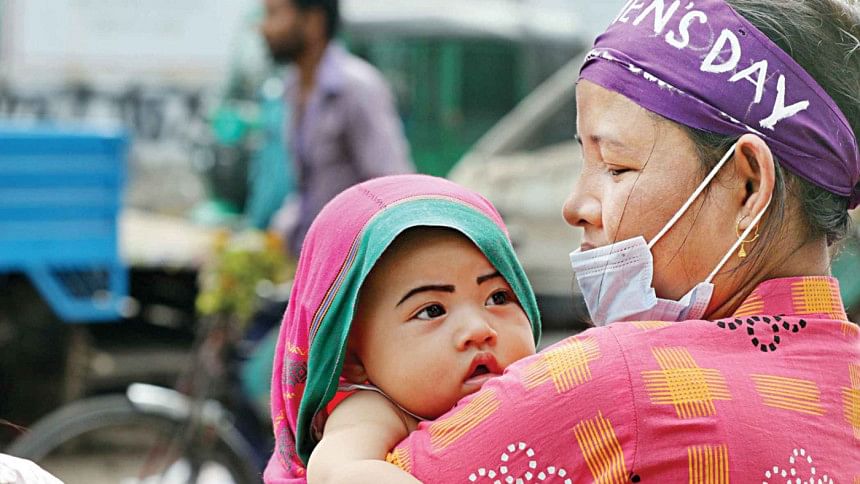Within political parties, it’s still a man’s world

For a political party to be truly a people's party, it's imperative that there is fair representation of various sections of the population, including women, within the party hierarchy. However, fair representation—not to be confused with empowerment—may seem like a tall order in a country where equal or proportional representation of women in politics is not even an issue, and where political parties still struggle to fill up the few seats reserved for women within their committees. A recent report by The Daily Star shows how far behind the target our major parties are. According to the report, despite there being a prerequisite for the parties' registration to reserve for women at least 33 percent of all committee positions at local and national levels by the end of 2020, almost all of them have failed to do so, and the Election Commission has done little to ensure their compliance.
For example, the ruling Awami League, which claims to be a women-centric party, has only 19 women in its 74-member central committee, averaging 26 percent. In case of BNP, women constitute only 11 percent of its 73-member advisory body, barely reaching the double digits. Among other parties, women constitute 15.8 percent of the 101-member core committee of Jatiya Party (Manju), around 11 percent of the central committee of the Workers Party of Bangladesh, and around 15 percent of the central committee of the Communist Party of Bangladesh (CPB). If this is the situation in the central committees of major political parties, one can safely imagine how poor the percentage of female representation will be in their committees at the grassroots level. The reasons cited by the parties—lack of eligible women leaders or candidates, a general lack of interest from women, etc—are hard to believe as we have often seen how enthusiastically women sought tickets for party nominations.
While the reserved seats may not be a true measure of women's empowerment, it is a contributing factor and also a cornerstone principle to which all parties have subscribed. True, women's political participation and representation has increased in recent years, but progress has been extremely slow. This is partly due to the unwillingness of the political leadership to create a conducive enabling environment for achieving better gender-balanced representation. Women should be encouraged and enabled to participate more in the democratic processes, including elections as well as party activities, so they can lead the change we so desperately need.
In any case, if there is internal resistance to women's rise to leadership positions, as some parties have claimed, it is the parties' responsibility to remove it through better discipline and more robust gender-sensitive policies. We urge the parties to fulfil their pledge to ensure fair representation of women. Also, the Election Commission must do better to implement the Representation of the People Order, which includes the reservation provision. If the time for compliance is to be extended, the electoral law must be amended so that no breach of its provisions makes it legally irrelevant.

 For all latest news, follow The Daily Star's Google News channel.
For all latest news, follow The Daily Star's Google News channel. 



Comments